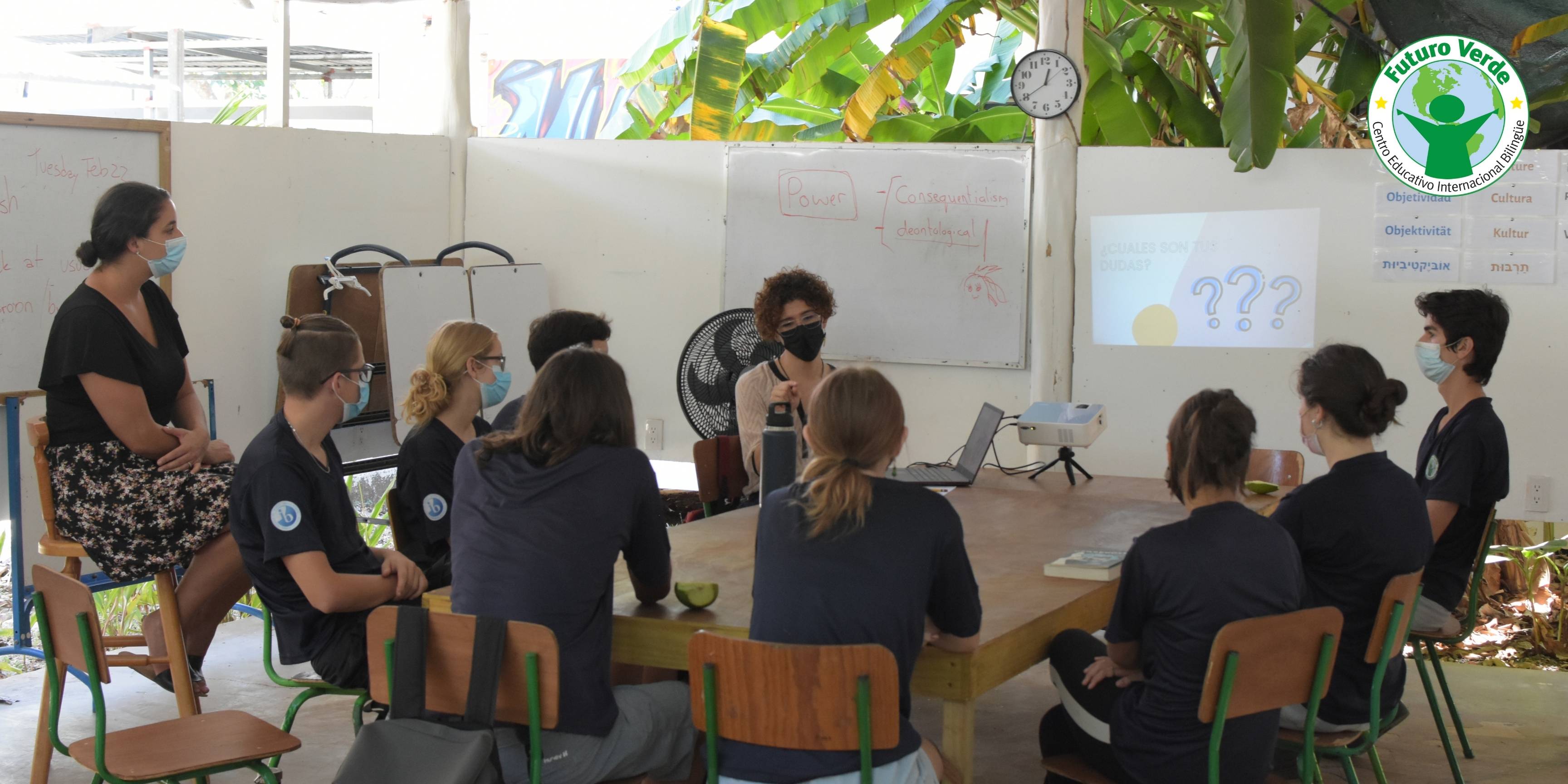
by Angie Briceño | Jun 7, 2022

At the end of the 2017 school year, Futuro Verde received its certification as an International Baccalaureate World School. The International Baccalaureate Organization evaluates schools that acquire this certification every five years. It has been five years since our certification and for some months now we have been working on preparing for the evaluation by the International Baccalaureate Organization.
But, what does the IB Diploma Program evaluation process for schools around the world consist of?
According to the International Baccalaureate Organization, the primary objective of IB program evaluation is to help schools continually develop their capacity to implement IB programs in order to have a greater effect on student outcomes through the development of teaching and leadership practices (2).
The evaluation of the Diploma Program in the school engages the school in a process of reflection that allows us to understand which aspects of the program are being developed effectively and which need further development. This reflection is done in conjunction with students, families, the board of directors, teachers and staff members who are directly involved in the implementation of the program.
The evaluation consists of three distinct parts:
- The preliminary review, where the school reviews and updates the information that was provided at the beginning of the certification process. This section includes a survey of parents with children who are attending, have attended or will attend the Diploma Program the following school year.
- A process of self-evaluation, collaboration and reflection in which different stakeholders participate and where families and students are invited to participate in the process.
- Finally, a visit to the school, which in our case will take place on April 19, 20 and 21, 2023.
Once this evaluation process is completed, the IB Organization provides the school’s leadership team with the findings of the process and recommendations for the school.
For those families and students directly involved in the evaluation process, a form will be sent to them so that they can collaborate with the reflection process.
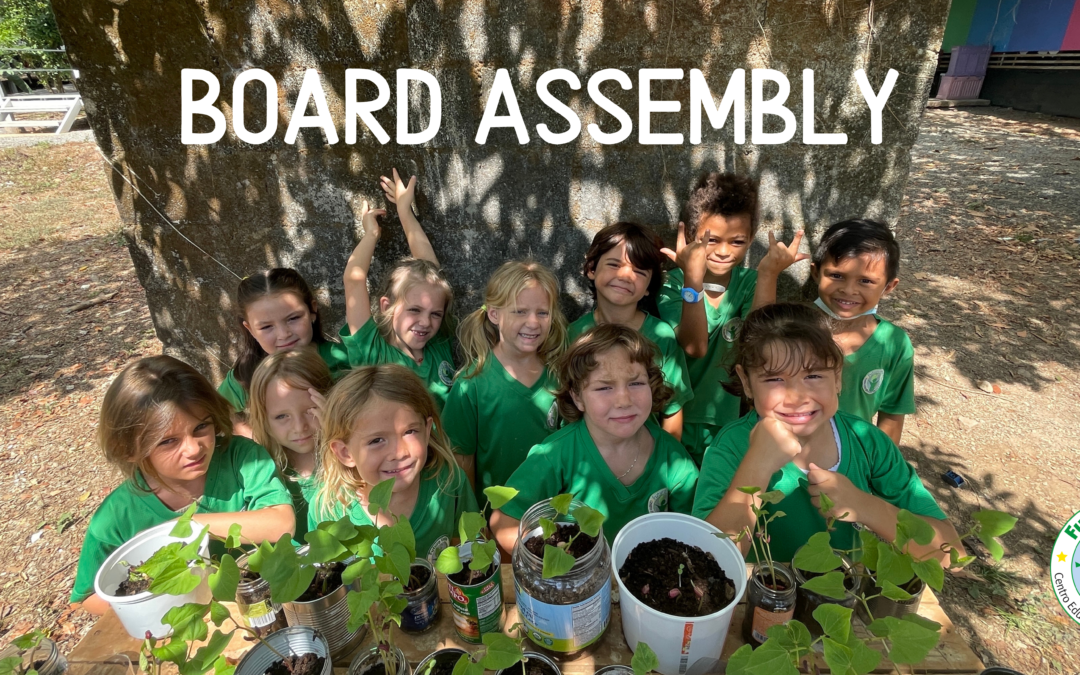
by Jennifer Middleton | May 25, 2022
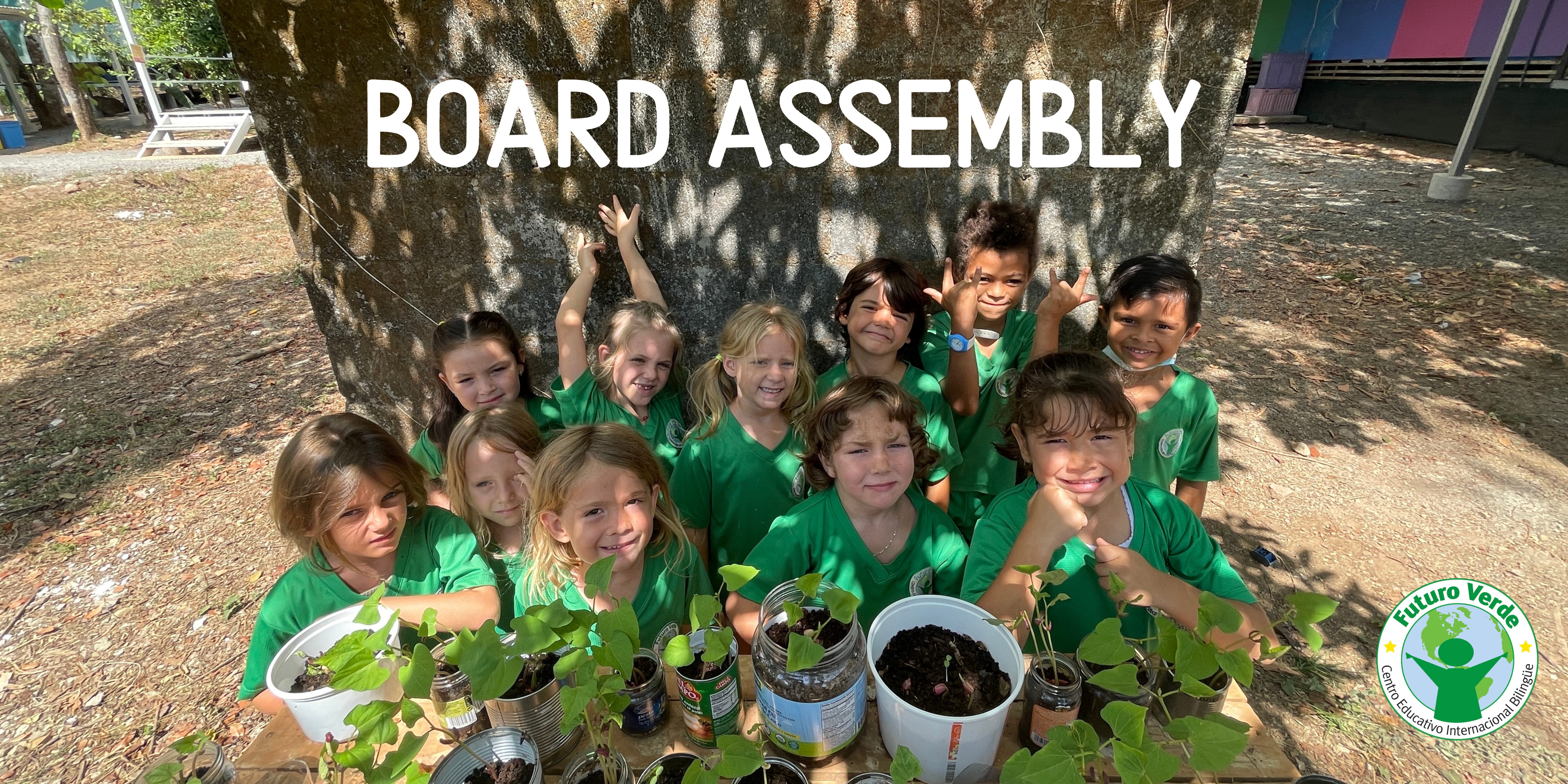
Hello Parents!
This article is to provide you with an overview of the extraordinary assembly meeting that took place this past April 20th 2022 at 4:00 pm via Zoom.
The full presentation is attached if you would like to review:
- Overview of the Extraordinary Assembly
- Strategic Planning & Teacher Retention
- Financial Report
- Vote for tuition increase
- Results: 75% in favor of a 15% increase in tuition rates, compared to 25% in favor of a 20% increase in tuition rates.
- According to the vote, there will be a 15% increase to tuition rates for the 2022-2023 school year.
Questions & Answers from the meeting:
- What does it mean to be bilingual? What English and Spanish is offered, native versus non-native?
Our immersion program involves teaching content in both languages and students being exposed to both English and Spanish languages throughout the day. We offer English language arts and Spanish language arts. We do not offer English or Spanish as second language courses due to the fact that we are a dual immersion school and the idea is that students acquire the language through content.
- If people (teachers and students) come and go, how do you guarantee academic rigor? Who oversees this ?
The director and the administration team are responsible for ensuring rigor and fluidity through curriculum. Each course has a study plan and we are currently in the process of updating and strengthening the scope and sequence of each course. We are also in the process of reinforcing internal systems so that these transitions are not so disruptive.
- What type of teachers do you want to attract? What is the focus ?
We want to recruit all types of teachers which include: Nationals, Residents, and International career teachers. The focus is on all, however, as mentioned in the presentation, it is difficult to hire international teachers due to many factors such as low pay, lack of affordable housing, etc. We will work to create packages to attract international teachers. Simultaneously, we will focus on hiring qualified teachers who already live in Costa Rica, whether they are national or foreign hires. It is likely that if they already live in Costa Rica or in the region, they will be more established and accustomed to what it is like to live in Costa Rica.
- Would creating part time positions be an option?
Our experience has been that teachers who are only here part time are only partly committed to the school and have been disconnected to the day to day operations, mission and vision of the school. Part time support positions could be an option, but part time teaching positions are not likely.
- Could the school facilitate after hours tutoring where teachers can charge an hourly rate?
Some of our teachers provide tutoring outside the school, but this is a service that is not provided by the school but by the teacher. Currently, the school only offers FARO centers.
- Is there concern that once the world opens up again, those numbers come down?
School expansion and contraction is a natural phenomenon all schools face over time. Instead of being concerned, we are exercising caution and strategic planning to ensure our finances are sustainable through these natural cycles.
- Is the focus on investing in more buildings, that in a few years will probably be moved the best priority? Or should we focus on inward growth instead?
The Board is currently focused on both facilities and infrastructure. However, the reality we face in the coming academic year is that we are limited on instructional space to operate all of our programs. New construction projects are now being evaluated for their impact on our natural space, ability to relocate, and cost.
- Instead of more class rooms, should we invest first in housing for teachers to support the current school?
The costs to build a residential village for teachers is not a viable financial option. Rough financial projections of the two projects are not even comparable. Unless we are able to secure a major donation or corporate sponsorship, we simply do not have the capital to take on a project that scale.
- If growth this big is a guessing game, why focus on expansion?
The focus of the current Board is not expansion. Our priority remains to provide the best academic program possible with the resources at our disposal. If the student population decreases in the coming years, the investment in our facilities will continue to provide value to the school community. We will NOT have empty classrooms.
- Have you thought about offering a third option with a lower increase to loyal students that have been with the school for many years and a higher increase to new students?
We HAVE NOT considered a third tuition option for “loyal” students, but will take the suggestion into consideration as we develop our strategic plan for the coming 5 years.
- Have you considered (projected) the increased tuition may result in some families exiting the program, potentially altering your projected growth figures for upcoming years?
Yes, we have factored in the attrition of our student population as a result of the tuition increase. For this reason, it is imperative we have a tuition base that can cover our operating expenses and establish a fiscal reserve in the event of a significant decrease in enrollment
If you have any questions or concerns, please feel free to contact junta@futuro-verde.org.
Sincerely,
Futuro Verde Board of Directors
LINK
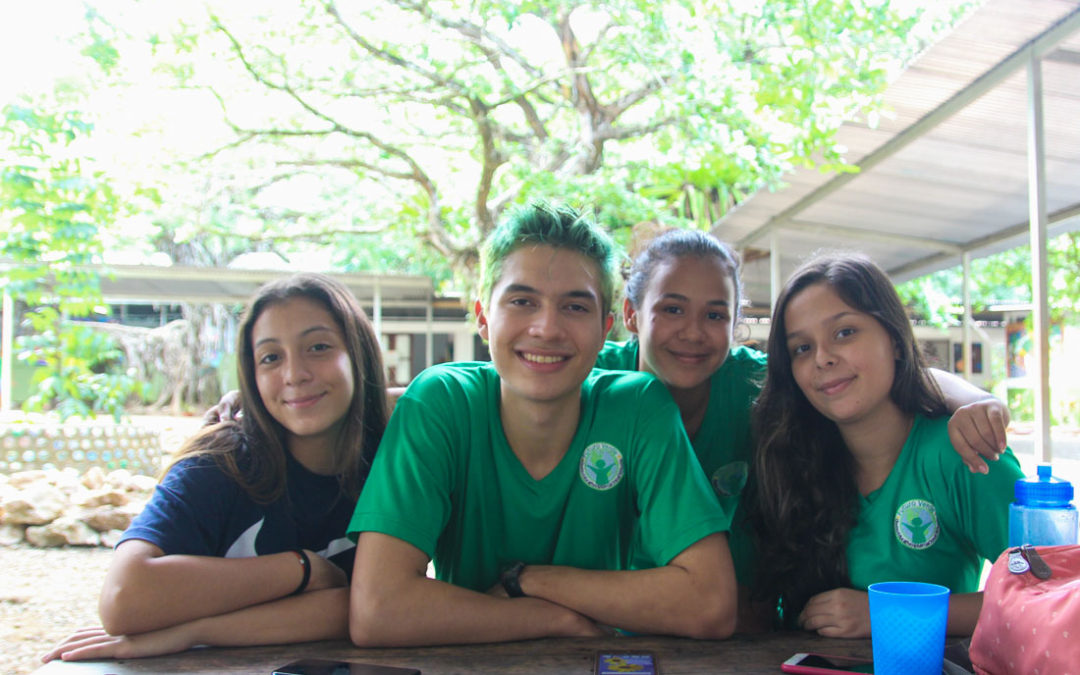
by Futuro Verde | Jan 10, 2020
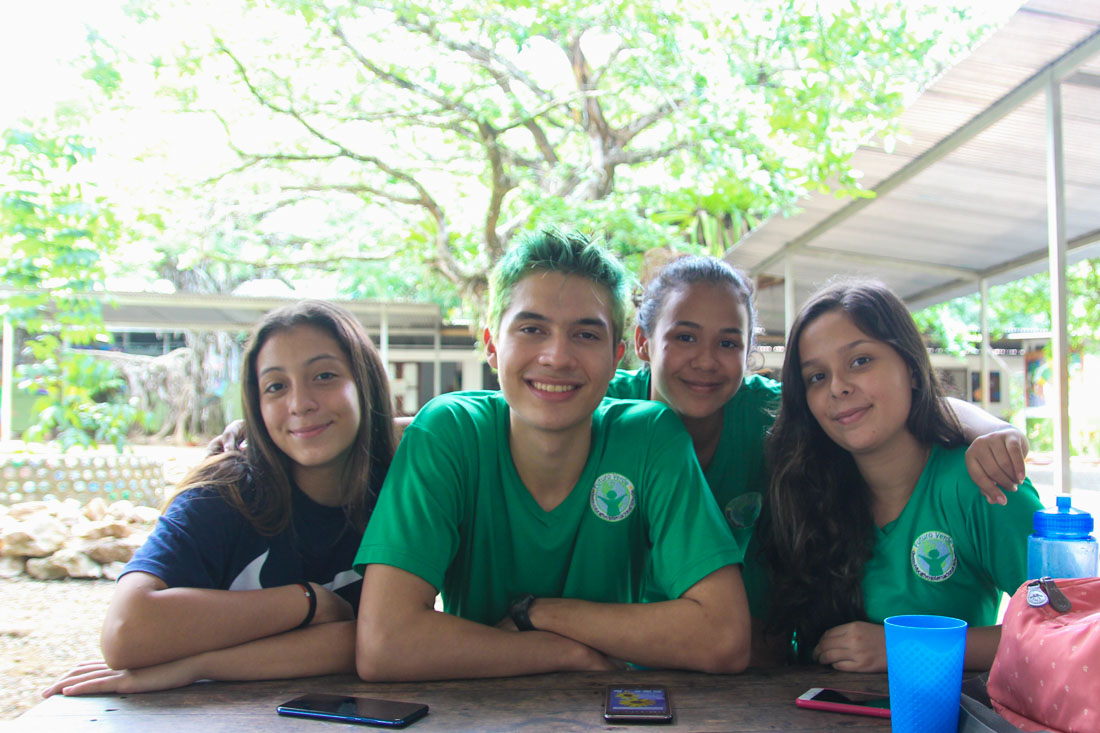
Important dates for the first days of classes 2020
True to our Futuro Verde tradition of innovation and dedication, the 2020 school year brings many activities and positive changes to our educational center. Please find below the important dates to start the year off well.
January 20th: the Futuro Verde offices open.
February 10th: 12.30pm – 3 pm: Open House
February 11th: First day of classes from 1st to 12th grade. Preschool department, soft start: interviews with preschool students and families.
February 12th: Preschool Department, soft start: interviews with preschool students and families.
February 13th: First day of school for Prepa (no classes for Pre-K or Kinder).
February 14th: First day of classes for Pre-K and Kinder (there are no classes for Prepa).
March 4th, 3pm – 5pm: Back to School Night
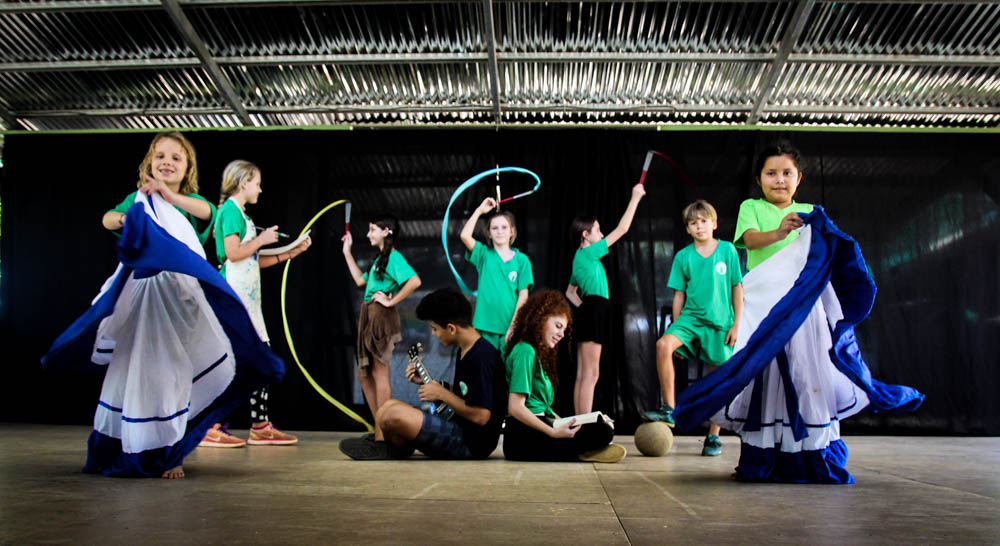
by Lural Ramirez | Aug 30, 2019

Over the course of this year I will be sharing with you reflections on our school’s core values. My article in July explored the third of five core school values, “Futuro Verde: Our cultural oxygen expands your curiosity”. Today, I will be sharing reflections on our fourth core school value.
Futuro Verde: We Take the Best of our Diversity to Live in Harmony
What a gift it is to belong to an international school community like ours! Did you know that not all international school communities are the same? Frequently you will find international schools where English is the only language taught. Other international schools may be located in a country different to their curricular offering that is tied strictly to a British, American or Australian framework for learning and the host country for the school is often not reflected in the school culture. Most other international schools are also geared toward educating only the economically privileged members of the community. As you most likely already know, none of these international school tendencies describe Futuro Verde!
Futuro Verde is an international school unlike most others! Here are some of the fascinating facts about our diverse community:
- Each year our student population is made up of students from around 33 unique countries from around the world.
- Over 60% of our student population is Costa Rican.
- Most years we boast over 10 unique native languages spoken in our students’ homes.
- Our school staff come from 14 different countries, with four English dialects taught and five Spanish dialects represented.
- We are a fully bilingual school, providing instruction equally amounts of time in Spanish and English from ages 3-18.
- A minimum of 30% of our students each year receive some form of financial aid in order to attend school with us.
- We are a secular school that welcomes all forms of belief and spiritual practice and our staff and student population is full of diversity in faith as well.
It is an amazing thing, if you think about it, that so much rich diversity has gathered in this little corner of the world! But, by far, the best part of our diversity is the harmony we keep with one another. In an ever divisive world, a global and diverse microcosm like Futuro Verde offers an opportunity to grow in tolerance, acceptance and open-mindedness and we strive to lead in the commitment to promoting a more peaceful and harmonious world. Thank YOU for forming part of the inspiring community that is Futuro Verde!
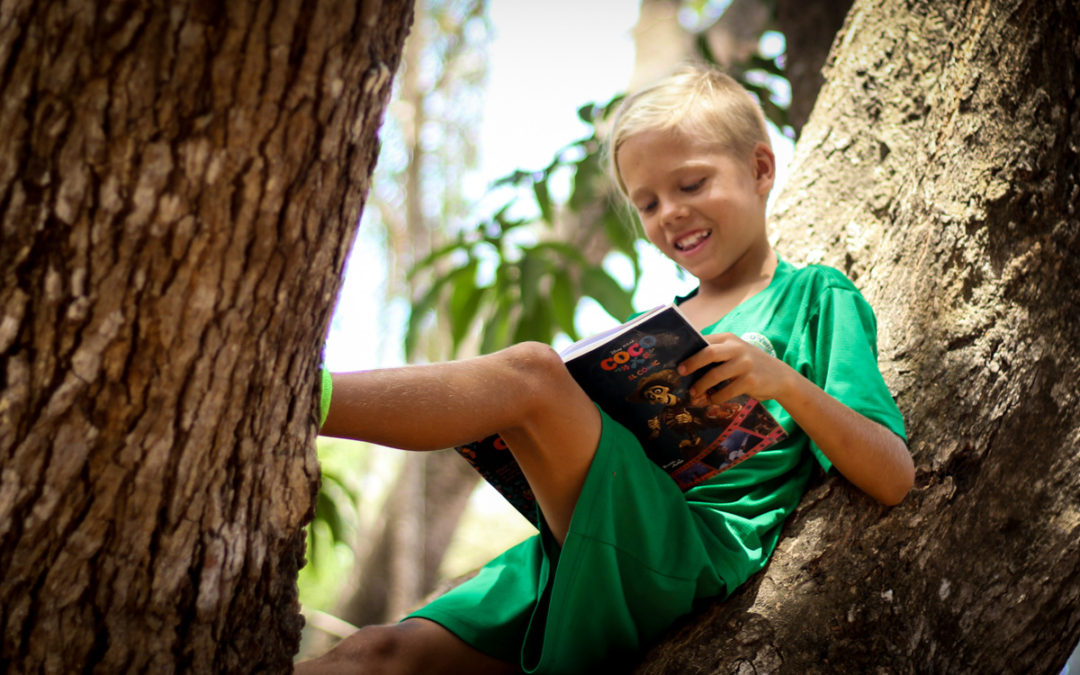
by Futuro Verde | May 5, 2019
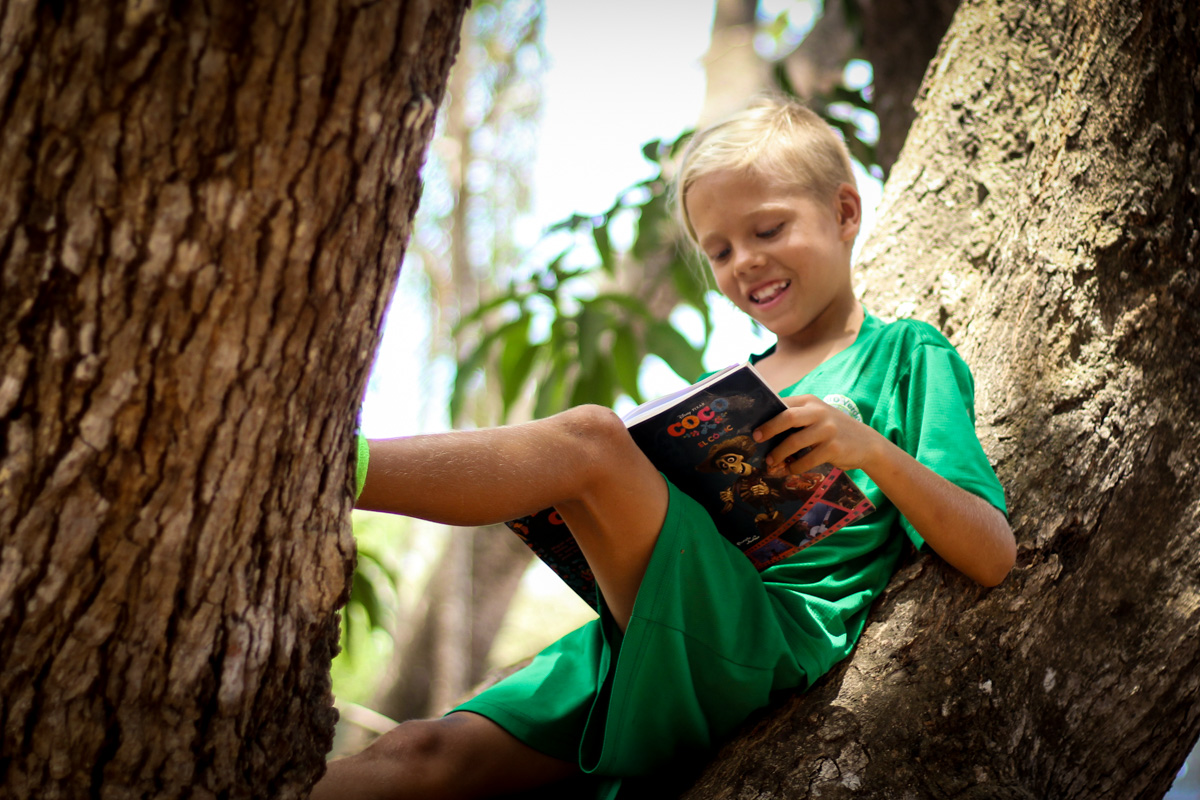
“Success is the sum of small efforts, repeated day in and day out” is a phrase by Robert Collier that sums up the work we do at Futuro Verde in general and, more specifically, in the library perfectly.
From the moment the library was founded, firm goals and convictions were established that are reinforced day by day, regardless of the circumstances. We started out with a simple space with a closed bookcase and a collection of no more than 750 books. Today, we have more than 7,000 copies in accessible shelves, as well as two reading, study and teaching areas. Hence, we believe that every minute dedicated to the library has been worthwhile and has paid off.
With the aim of changing the perception that documentation centers have become tedious and lifeless places, the school administration, collaborators and library employees have taken on the task of converting this area into a comfortable and attractive hub, mainly for the students. Attempting, without a doubt, to draw them closer to the most important source of culture, information and knowledge: books. Through school investments, donations and various fundraising activities, we have managed to improve in 4 essential areas:
Increase the bibliographic volume of books in Spanish, English and French.
Bring library spaces to life.
Provide the necessary means for successful investigations.
Instill a love of reading from the smallest levels onwards.
This last point is, undoubtedly, one of the most important and the school decided to support it by hosting our first Annual Book Fair, held the same day as International Book Day on 22, 23 and 24 April.
Since we sold 70% of the books that we had purchased, recovered the money we had invested, and earned a profit in both money and books (since all the books that were not sold will be incorporated into the library), we are extremely proud to announce it was a huge success! Moreover, we feel great satisfaction knowing that many parents and students invested their money in books, which they are enjoying today.
For all of us involved in the preparation of our fair, it was gratifying to see the excitement and emotion on the face of each child, youngster, teacher and parent who came to the stand to admire or buy a book.
I would like to extend our sincerest thanks to the people involved and collaborators: Doris Madrigal, Mariel Urban, Jusneyling Marenco, Angie Briceño, Katie Chiaverini, Lural Ramírez, Evelyn Vargas, Joaquín Salas, Hannia Granados, Hellen Molina, Walter Mairena, Alannah Anglin and Khalida Lockheed, without your support and collaboration this wonderful week would not have been possible!
We also wish to thank the sponsors of our bingo:
- Chelo’s Pizza
- Farmacia Montecristo
- Transporzuma
- Repostería Doris Madrigal
- La Selva
- Maureen’s bracelets
- Piscina Torogoz
- Macondo Montezuma
- Santa Teresa Travels
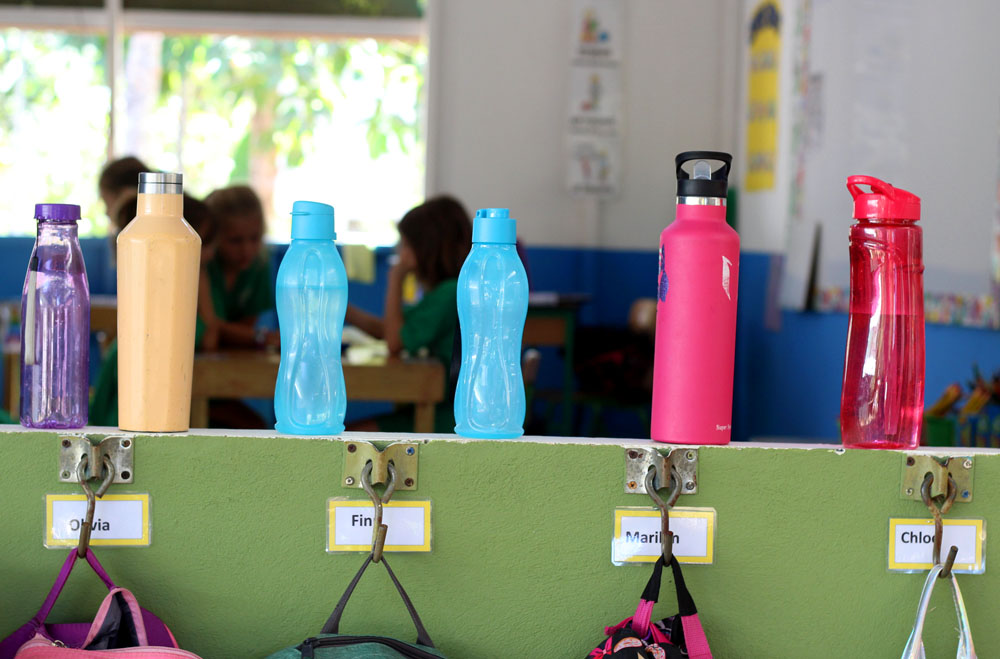
by Angie Briceño | Jan 21, 2019

We feel so grateful that we have drinkable water in our wonderful school, we feel very privileged to have this treat right here in our campus facilities, especially during the months from January to May which are the driest and hottest months of the year. With temperatures up to 32°.
With these temperatures and living in the Nicoya Península it is very important that all the students should keep hydrated!
Help all the kiddos, mid-schoolers and high schoolers get fresh and cold water this summer!
We would love to have water dispensers around the school to provide fresh and cold water to all our students! Help us getting 9 water dispensers for the school!
Where will these dispensers be?
- First and second grade area ($250)
- Third and fourth grade area ($250)
- Fifth and sixth grade area (250)
- Social Studies/Math/Art high school area ($250)
- Spanish, English and Science area ($250)
- Music and Lab area ($250)
- Library ($250)
- Dining hall ($250)
- Office
Any amount will help us make this wish come true! Donate online or in the main office.
We thanked you in advance for keeping us cool and fresh!
Donate now!










